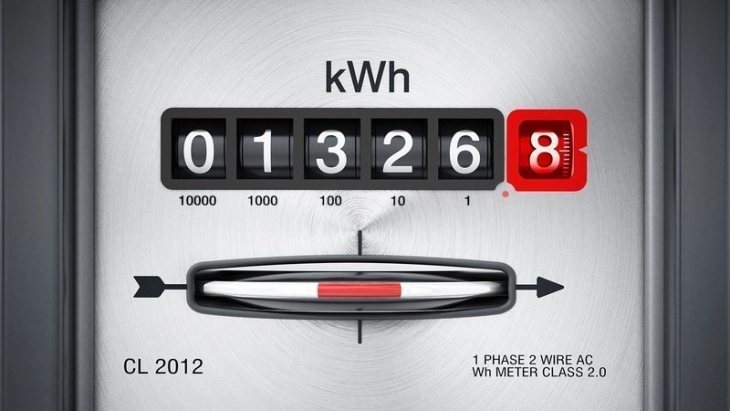Electricity prices rise as new concept of block tariffs is introduced

Skopje, 1 July 2022 (MIA) – The price of electricity goes up today, July 1, and the new concept of block tariffs has been implemented. Regulators assure that the average price of electricity will only go up by 7.4% for 98.8% of households. There will be no electricity restrictions, even though a tough winter lies ahead.
The blocks will only apply to the high tariff. The cheap tariff will have no blocks and the consumption will be paid based on the difference. The Energy Regulatory Commission (ERC) says that if block tariffs were not introduced, then the price would’ve gone up by 17.74%.
“ERC implemented the block tariff system in order to help the most vulnerable categories of consumers and households that have no other heating option apart from electricity, which is why we’ve only expanded the blocks into the high tariff up to 1050 KW/h. Check to see if any other country in the region has blocks this high. I firmly stand behind the statement that the blocks in Macedonia are the highest in the region,” ERC President Marko Bislimovski said in Ohrid on Thursday.
He claims that 59.9% of households will have increased bills by 6.6% in the winter, 20-30% will have increased bills by 6.6-8.7%, 3% will have increased bills by 8.7%-11.2%, and those who consume a lot will have increased bills by 11.2-99/100%.
The opposition believes that the power costs will increase between 17-18%, claiming that the new power costs and tariff model will harm the citizens twofold and that they’ll end up burning all they can in order to heat up this winter.
The government isn’t keeping it a secret that a tough winter lies ahead, but they assure that there will be no restrictions. Minister of Economy Kreshnik Bekteshi said at the MEF in Ohrid that the ESM is making all necessary preparations to increase production of electricity, and that it already has according to their plan.
He also believes that the block tariffs will facilitate the consequences from the crisis and that they’ll help the most vulnerable categories of citizens and those who have no other heating options other than electricity.
“Depending on prices, the biggest burden will fall on those who heat up pools, those who can pay the bills, those who spend enough for 100 average households in the county per month. In terms of the average citizens, those who spend an average amount in accordance with all the parameters and their needs might even get lower bills with the block tariffs. We all need to stay vigilant and try to save as much power as we can, because this is a global crisis that doesn’t only apply to North Macedonia,” Bekteshi said.
Bislimoski said that the construction of capacities for supplying baseline energy must be considered, because the problem with electricity production has surfaced over the last few crisis years.
“If we produced up to 5000 GW/h yearly, we would’ve gone through the energy crisis more easily. We have to think of the future now, build capacities and secure baseline power,” Bislimoski told Kanal 5 TV.
“When we run out of coal, we lose our independence. The Sun will bring it back to us in the future, so gas plants must be built. TEC Negotino has been a monument since 2006, and it’s only now started working. If TEC Negotino switched to gas back then, we would’ve had an excellent baseline energy capacity. Those are the missed opportunities by politicians that must be made up for,” Bislimoski said. dk/ba/







